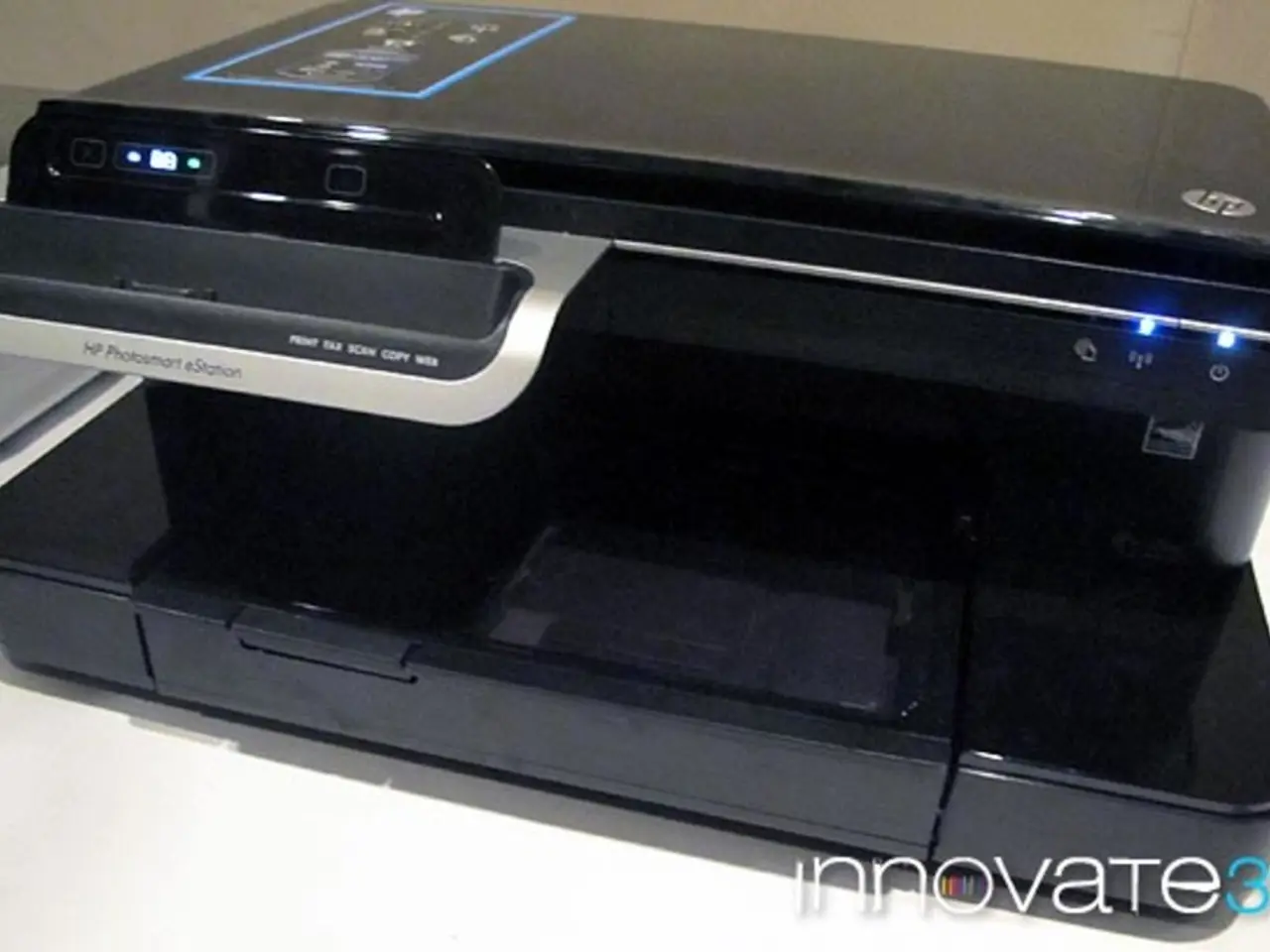Business Options for Customizable Printing Solutions
## Revolutionizing Small Businesses: The Rise of DTF Printers
Direct-to-Film (DTF) printing has become a transformative force in the custom apparel and product decoration industry, particularly for small businesses. Its appeal lies in its ability to eliminate high minimum orders and large upfront costs, making it an ideal choice for microbrands, content creators, Etsy sellers, and local retailers who require short runs and customized products [1][4].
The versatility of DTF technology allows printing on a wide array of materials, not just textiles, but also hard surfaces like glass, plastic, and metal, thanks to innovations such as UV DTF, which offers vibrant colors and instant drying [1]. Equipment like the Epson SureColor G6070, priced around $13,995, brings industrial-quality capabilities within reach of small workshops, further lowering the barrier to entry [2]. Automation is also being widely adopted, reducing labor and increasing consistency in film feeding, powder application, and curing [5].
Integration with online marketplaces via plug-and-play APIs has streamlined order processing, reducing manual work and enabling small businesses to scale quickly with minimal overhead [2]. Direct-to-consumer and platform-based fulfillment channels are growing rapidly, supporting the trend toward on-demand, personalized products [3].
## The Future of DTF Printers
The industry is moving rapidly towards fully automated DTF workflows, which will further lower labor costs, increase production speed, and improve print consistency—key factors for scaling small businesses [5]. UV DTF is opening new revenue streams for small businesses by enabling customization of items like tumblers, phone cases, and signage, not just clothing [1].
Continued growth in marketplace integrations will make it even easier for small operators to manage orders, comply with tax regulations, and track shipments across platforms like Amazon, Etsy, and social commerce channels [2]. Pressure on pricing and quality may squeeze margins, and maintaining consistent quality will be critical to avoid returns and preserve brand reputation [2].
Adoption is accelerating in Asia-Pacific, driven by government subsidies and digitization mandates that shorten return-on-investment periods to under two years [2][3]. This growth is likely to continue, with DTF poised to gain further market share at the expense of older technologies like Direct-to-Garment (DTG) [3].
Advances in inks and substrates are expanding material compatibility and improving durability, which will help small businesses cater to sportswear and technical apparel markets [3]. Sustainability and material innovation will play a crucial role in the future of DTF printing.
## Comparing DTF with Traditional Methods
| Feature | DTF Printing | Traditional Screen Printing | |------------------------|-------------------------------------|---------------------------------| | Minimum Order Size | None or very low | High | | Setup Costs | Low | High | | Material Compatibility | Textiles, glass, plastic, metal | Mainly textiles | | Turnaround Time | Fast (ideal for on-demand) | Slower (bulk-focused) | | Automation Potential | High (growing) | Moderate | | Entry Barrier | Low (accessible to small businesses)| Higher |
## Top DTF Printers for Small Businesses
- The MZK A3+R L1800 T1 DTF Printer is suitable for a wide range of fabrics, including T-shirts, hats, handbags, and more. It comes with a built-in white ink circulation system with an automatic cleaning function, a reliable paper input/output system, and a complete set including the printer, a roll of film, inks, and various accessories. - The Tenee L1800 A3 DTF Printer is a versatile and user-friendly choice for small businesses and individual entrepreneurs, with features such as advanced ink flow technologies and personalized technical support for software installation. - The DSV L1800 DTF Printer is designed for small businesses looking to diversify their fabric printing capabilities, with features such as an innovative roll feeder and auto heat station for efficient printing. - The EnjoyColor A4 DTF Printer and Oven Bundle offers a solution for small businesses, with features such as high-quality printing and personalized technical support for software installation. - The Procolored L1800 DTF Printer offers user-friendly solutions for diverse fabric printing needs, with high-quality output and compatibility with various fabrics. - The AOK L8058 A4 Size DTF Printer is a compact and efficient choice for small businesses that require versatility in fabric printing, offering high efficiency and compatibility with a wide range of fabrics. - The A3 Economic Automatic DTF Powder Shaker and Dryer Machine supports a maximum shake powder width of 13.4 inches (340mm) and works on AC110V power supply. It comes with 4 quartz infrared heat drying tubes to improve color reproduction and ensure vibrant, long-lasting prints.
When selecting a DTF printer, it's important to consider factors such as print quality, material compatibility, ease of use, speed and efficiency, durability and reliability, cost of operation, size and footprint, support and warranty, scalability, and eco-friendliness. With the right choice, small businesses can unlock the potential of DTF printing to grow their customization capabilities and cater to a diverse range of applications, from creating custom apparel and promotional merchandise to home decor, fashion accessories, prototype development, e-commerce, artistic endeavors, seasonal products, and pet products.
- Scalability in small businesses can be further enhanced through fully automated DTF workflows, which will lower labor costs, increase production speed, and improve print consistency.
- The adoption of DTF technology in finance and entrepreneurship sectors is expanding, with advances in inks and substrates allowing for the customization of various gadgets and products like tumblers, phone cases, and signage.
- Technology innovations, such as the integration of DTF printers with online marketplaces, are streamlining order processing, enabling businesses to grow rapidly with minimal overhead, making it easier to comply with tax regulations and track shipments across platforms like Amazon, Etsy, and social commerce channels.




